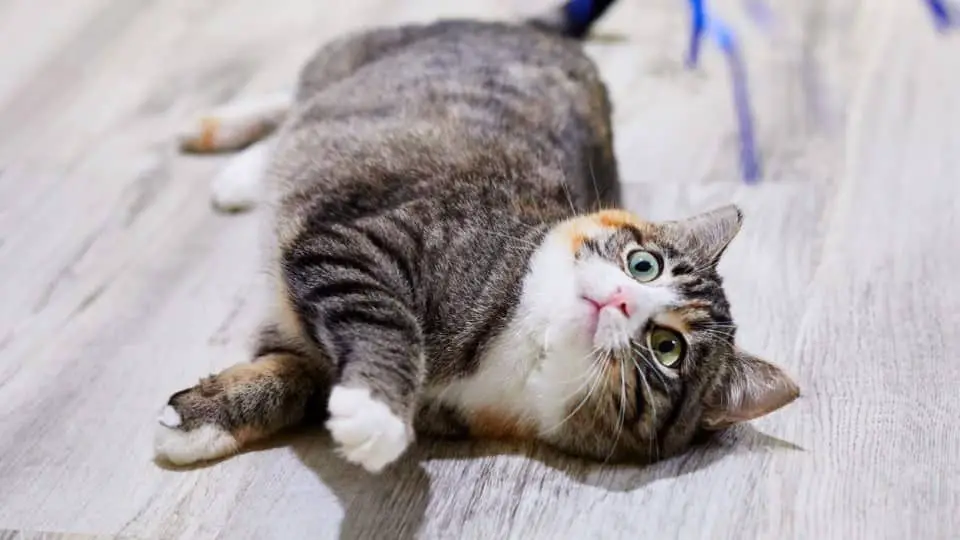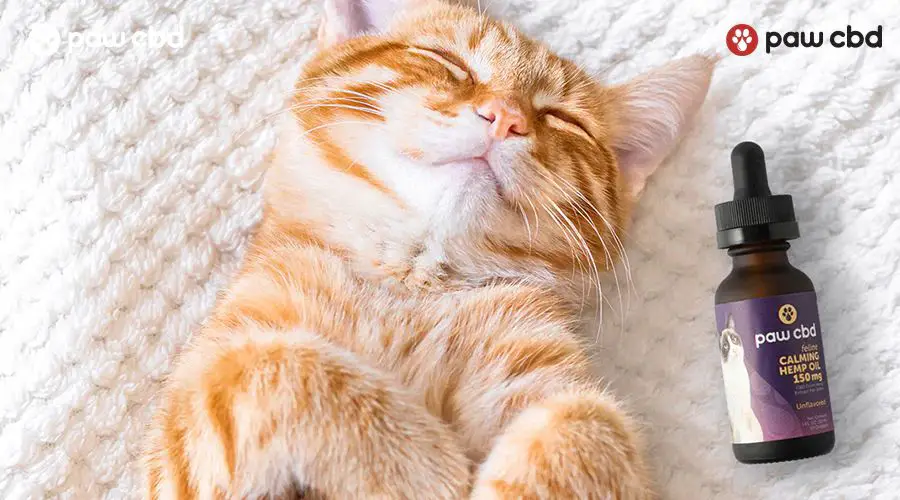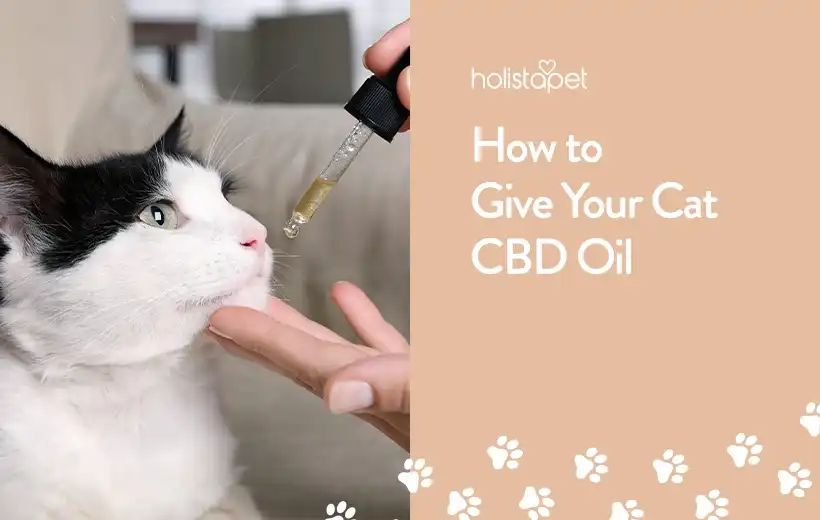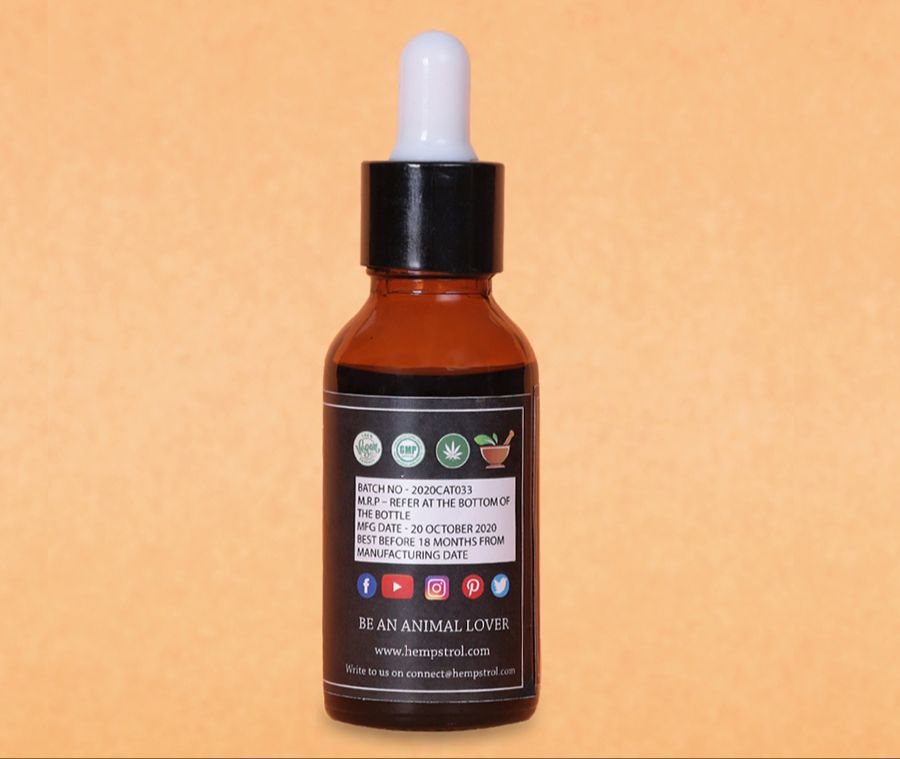Both catnip and CBD (cannabidiol) have become increasingly popular natural supplements for pet owners to give their cats, dogs, and other animals. Catnip is a minty herb from the Nepeta genus that has traditionally been used to help relax cats. Meanwhile, CBD is a compound extracted from cannabis or hemp plants that is said to provide various health benefits for pets.
This article will compare and contrast catnip and CBD for pets. We’ll examine the active ingredients, effects, benefits, risks, dosage, and regulation of these two plant-based supplements. The goal is to help pet owners understand if catnip can be thought of as a natural version of CBD tailored for felines or if the two should be considered completely different in their mechanisms and uses.
What is Catnip?
Catnip is an herb that belongs to the mint family of plants. Its scientific name is Nepeta cataria. Catnip contains a chemical called nepetalactone, which is the active ingredient that causes a response in cats (Source). When cats smell or ingest catnip, the nepetalactone binds to receptors in their brain and has an effect similar to stimulants or hallucinogens in humans.
Not all cats are affected by catnip. Around 50-70% of cats have a sensitivity to nepetalactone and will exhibit a euphoric reaction when exposed to catnip. This reaction includes behaviors like rolling around, flipping over, head shaking, drooling, vocalizing, and aggression or playfulness. The effects of catnip on cats usually last between 5-15 minutes before wearing off.
What is CBD?
CBD, or cannabidiol, is a compound derived from cannabis or hemp plants (1). Unlike THC, the psychoactive compound in cannabis, CBD does not produce a “high” effect. CBD interacts with the endocannabinoid system in dogs, which regulates various functions like pain, mood, appetite, and inflammation (2). When given to dogs, CBD has been shown to have potential benefits for anxiety, pain, seizures, cancer, and arthritis (3).

Studies have found that CBD may help increase comfort and activity in dogs with osteoarthritis (1). It also helped reduce the frequency of seizures in dogs with epilepsy (2). However, more research is still needed on proper dosing and potential side effects.
Active Ingredients
The main active ingredient in catnip is nepetalactone, which is an organic compound that interacts with receptors in a cat’s brain and induces a temporary euphoric state. Nepetalactone binds to olfactory receptors and stimulates a response that can make cats act hyperactive, playful, and loving.
The primary active ingredients in CBD products are cannabinoids like CBD (cannabidiol) and small amounts of THC (tetrahydrocannabinol), which interact with a mammal’s endocannabinoid system to produce therapeutic effects without causing a “high.” CBD does not contain the psychoactive compound nepetalactone that creates the intoxicating effects in catnip.
While both catnip and CBD come from the cannabis plant genus, they have distinct active chemicals that create different reactions in the body and brain. Nepetalactone offers temporary enjoyment for cats, while CBD provides more sustained wellness benefits without intoxication.
Effects on Pets
Catnip has a unique effect on cats that is not seen in any other animal. When cats smell or ingest catnip, it interacts with their olfactory system and induces a euphoric state. The active compound in catnip, called nepetalactone, is structurally similar to valepotriates which have a sedative and relaxing effect in humans. However, nepetalactone seems to have the opposite effect on cats and makes them energetic and playful.
According to the Human Society, most cats react to catnip by rolling around, flipping, rubbing, and eventually relaxing into a contented state. They may meow or growl at the same time as part of this excitable phase. The effects typically last around 5-10 minutes. Some cats may become hyperactive or overly aggressive with catnip.
On the other hand, CBD or cannabidiol has calming and pain-relieving effects in dogs. CBD interacts with the endocannabinoid system to reduce anxiety, relieve pain, and provide neurological protection. Studies have shown CBD to be effective at reducing noise phobia and separation anxiety in dogs. It is non-intoxicating and appears to be safe, without any serious side effects. The calming effect of CBD is very different from the excitatory “high” that catnip induces in cats.

Benefits
Both catnip and CBD offer potential benefits for pets when used appropriately. Catnip can provide a safe and natural high for cats, inducing states of euphoria and hyperactivity. The active ingredient nepetalactone binds to receptors in a cat’s nose and stimulates a response similar to a narcotic reaction in humans. This can help relieve stress, anxiety, and boredom in cats.
Meanwhile, CBD is often used by pet owners to help relieve anxiety, reduce seizures, ease pain and arthritis, boost immunity, and more in dogs. According to the AKC, CBD interacts with receptors in a dog’s brain and immune system and may help reduce inflammation and chronic pain [1]. However, more research is still needed on CBD’s effects.
Both catnip and CBD should be given carefully in small doses. Consult with your veterinarian before introducing these supplements, and monitor your pet’s reaction. But used properly, they offer natural potential benefits for pet health and happiness.
Risks
While catnip and CBD are generally considered safe for pets, there are some potential risks to be aware of:
Catnip toxicity – Consuming too much catnip can cause vomiting, diarrhea, hyperactivity and aggression in some cats. The ASPCA recommends limiting catnip use to 5-10 minutes per day to avoid adverse reactions. source
CBD overdose – Giving dogs too much CBD oil can result in lethargy, vomiting, diarrhea and changes in appetite or thirst. It’s important to follow dosage guidelines and monitor for side effects. source
Drug interactions – CBD may interact with certain medications like blood thinners and seizure drugs. Check with your vet before using CBD products if your pet is on other medications. Catnip generally does not interact with drugs. source
Lack of regulation – CBD products are not well regulated for pets. Some CBD oils may contain contaminants or inconsistent levels of CBD, making dosing difficult. Only purchase CBD from reputable brands that provide third-party testing results. source
While moderate, responsible use of catnip and CBD is considered safe for most pets, it’s important to monitor for side effects and consult your vet with any concerns.
Dosage
The appropriate dosage for catnip depends on the cat, the form of catnip, and the cat’s sensitivity to it. Cats and kittens can respond to catnip in their systems in as little as 10 minutes with effects lasting between 10-15 minutes (1). A good starting dose is 1 teaspoon of dried catnip, as long as the cat does not overindulge. Giving too much catnip can make cats overly stimulated and anxious. It is best to start with small amounts and watch the cat’s reaction.
For CBD oil, an appropriate dosage for cats is 0.2 mg per kg of body weight twice daily. So a 10 lb cat would get 0.9 mg of CBD oil twice per day. CBD oil should be given orally by dropper or mixed into the cat’s food, and effects may take 1-2 hours to appear (2).

Both catnip and CBD dosage should start small under owner supervision to monitor the pet’s reaction. While catnip effects are short-lived, CBD builds up in the body over time. Cat owners should consult with a veterinarian to determine the right CBD dosage for their cat’s needs.
Sources:
(1) https://www.holistapet.com/blogs/cat-care/how-much-catnip-to-give-a-feline
(2) https://wagwalking.com/wellness/how-much-cbd-oil-should-i-give-my-cat
Regulation
Both catnip and CBD products are unregulated by the FDA. The FDA has stated that CBD products cannot be sold as dietary supplements and are currently illegal under federal law, though the FDA has generally not enforced these regulations (FDA Concludes that Existing Regulatory Frameworks for Foods and Supplements are Not Appropriate for Cannabidiol). CBD is regulated differently at the state level, with some states allowing CBD that comes from hemp to be sold legally (Your Guide To CBD Legalization By State – Forbes).
Catnip products for pets are not regulated by any government agency. There are no standards for the manufacturing, packaging, or labeling of catnip products. Some have raised concerns about contamination and inconsistent potency in commercially available catnip products.
Conclusion
In summary, while catnip and CBD both interact with the endocannabinoid system in dogs, producing calming effects, there are some key differences between them. Catnip contains the terpenoid nepetalactone which binds to cannabinoid receptors, but does not contain CBD itself. The effects of catnip only last about 10-15 minutes. CBD directly interacts with the endocannabinoid system and its effects can last for hours.
CBD has been more widely studied for potential therapeutic benefits in dogs, while catnip is considered more of an aromatic herb that provides temporary enjoyment. The dosages and risks associated with each are different. While catnip is generally considered safe, CBD poses some health risks at high doses.

Overall, while catnip can provide short-term enjoyment for dogs like a treat, it should not be considered an equivalent natural alternative to CBD for therapeutic purposes. The compounds, duration of effects, and health applications differ substantially. More research is still needed on both catnip and CBD to fully understand their interactions and effects in dogs.

